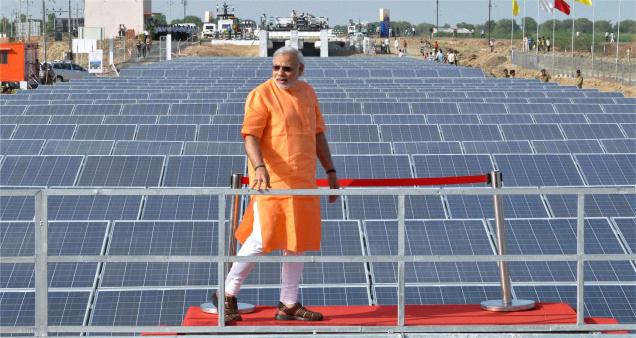India has dropped a plan to levy the antidumping tariffs on solar cells imported from the U.S., China, Taiwan and Malaysia, according to official releases.
Piyush Goyal, the renewable-energy minister commented on this development that the government is committed to supporting local manufacturers.
India hopes that the South Asian nations hold the power to boost up India’s solar-power ambitions.
The Ministry of Finance has rejected the recommendation from the Directorate General of Anti-Dumping and Allied Duties.
In May, they had ruled that the imported cells are priced below the average cost damaging local manufacturers.

The decision comes as a relief to local solar-power generators that have planned billions of investment in solar sector as well as for the policy makers.
In 2010, India has launched a program to escalate solar-generating capacity to 20,000 MW by 2022, which will rise solar to about 5 percent of its power mix from nearly 1 percent now.
Recently Prime Minister Narendra Modi has emphasized on the future of solar power in energy-hungry India.
Now that the antidumping obstacle is out of the way, the Indian government can focus on its own motivated plans, stated, Consultancy Bridge to India Energy.
Analysts were also supporting the move on antidumping the tariff plans. They are of the opinion that access to sophisticated foreign technology and cheap overseas loans, which come along with the equipment-import deals, is important for India’s solar plans.
Tariffs will render expensive solar power for consumers, analysts added.
The Indian Solar Manufacturers Association (ISMA), which represents manufacturers, had ensured their commitment to expansion of solar manufacturing in the country as part of wider goals of the government to lift local manufacturing.
At the same time, the manufacturers are sensitive to the challenges faced by government because of the energy deficit, said, ISMA spokesman.
India has set a target of raising manufacturing share to 25 percent of gross domestic product by 2025, from the present 15 percent now, as it may boost the week economy, creating jobs.

